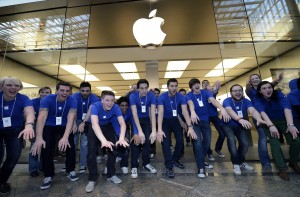
According to Amal’s Blog post, DiGi, a large cellular provider in Malaysia, is aiming to change its corporate structure from a tall organizational structure to a more flatter one – in other words: de-layering. This decision holds many benefits within it, including less management costs because there are less levels of management, shorter chain of command and channels of communication, and greater employee motivation as they feel trusted and there is greater chance for delegation and empowerment. Still however, this decision has many disadvantages. A more flat structure will lead to a greater number of employees under every manager, which means a greater chance of slack in this sense, as employees feel less supervised and monitored by their managers. Additionally, decision making within the same level will be very time-consuming. Also, employees might feel less motivated by less promotion opportunities. All of this will all lead to high costs.
Thus, although a more flat organizational structure will lead to a decrease in costs in some aspects, it will lead to an increase in costs in other aspects. DiGi thus has to decide if the productivity and efficiency will be enhanced so that the benefits of such a decision outweigh the costs.




Recent Comments